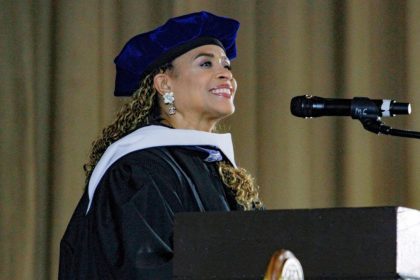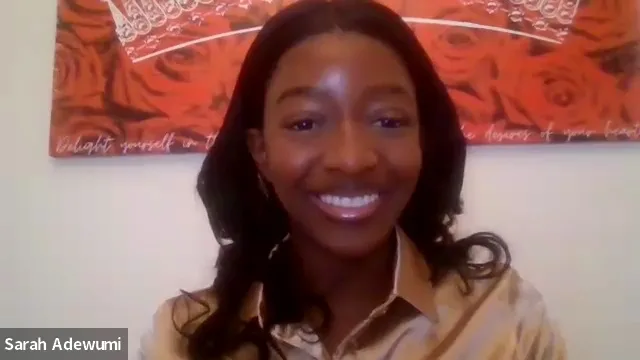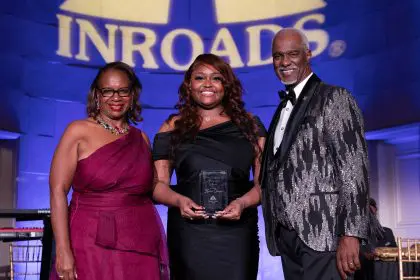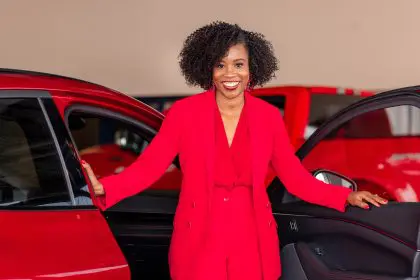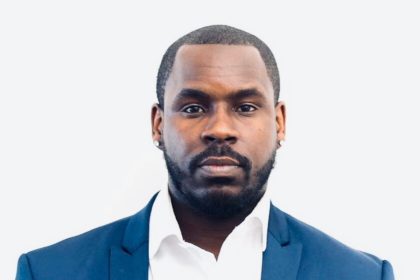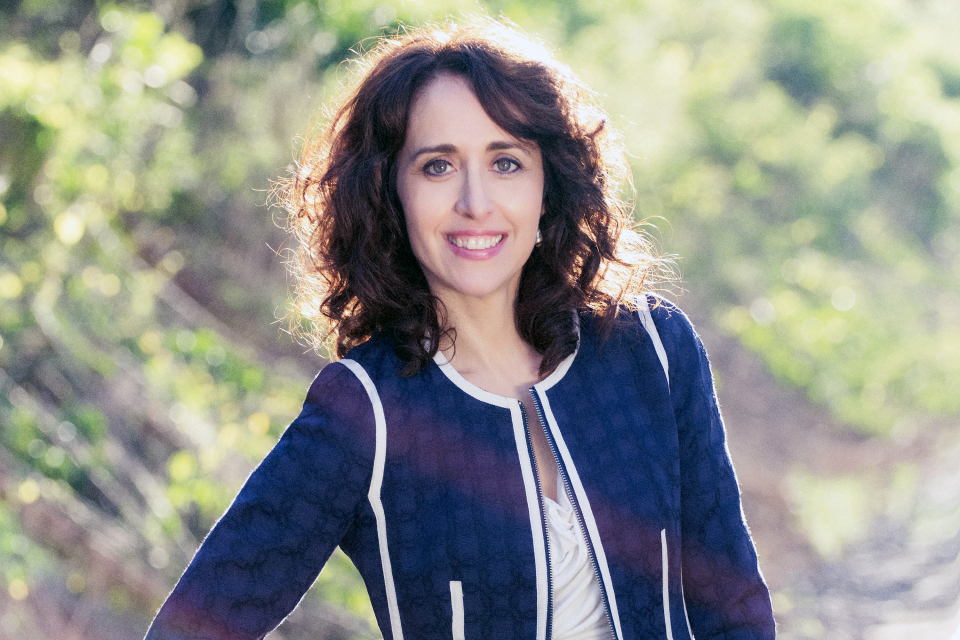
Luz María Frías is the president and chief executive officer of YWCA Minneapolis and is responsible for leading the strategy and operations of the organization’s five areas of commitment to the community: Health and Wellness, Early Childhood Education, Girls and Youth, Racial Justice and Public Policy.
Here, she shares the vision for the YWCA, her philosophy on leadership and why diversity and inclusion are important.
Please describe your role as president/CEO of YWCA Minneapolis.
With a mission of eliminating racism and empowering women, YWCA Minneapolis serves 30,000+ people annually with a budget of $23M through a dedicated staff of over 500 employees.
As the president/CEO, I am responsible for the overall vision and strategy for the organization. I partner with the board of directors to create and execute the strategic direction for the organization’s growth.
What is the vision for the YWCA?
Our vision is to be the most trusted and effective change agent in the journey to eliminate racism and sexism in our community.
YWCA Minneapolis stands for a fully inclusive community in which each person is healthy and valued, and where racial justice, gender equality and human dignity are promoted and sustained through bold and effective women’s leadership.
Can you describe your leadership style?
My philosophy is grounded in shared leadership where leadership responsibility is broadly distributed across leaders in their areas of expertise. My leadership style is to lead with integrity, transparency, clear communications, and posing questions of employees rather than directives.
As president and CEO of the YWCA what is your commitment to the community?
My commitment is to amplify and deliver on our mission of eliminating racism and empowering women across our community.
What would you say are your top five commitments to the community?
a. Ensure that our children, birth to age 5, in our childcare centers are developmentally and academically on track to reach their full potential e.g., currently 94 percent of our children are ready for kindergarten irrespective of race or socio-economic status.
b. Empower our youth with critical information about their bodies to prevent fathering children and/or becoming a teen mother.
c. Provide afterschool programs that teach our youth key skills that will equip and inspire them to graduate from high school and attain higher education.
d. Eliminate racism by working within the community to eliminate inequities on interpersonal, institutional, and systemic levels.
e. Serve as a leader in health and wellness delivery in market-competitive spaces, and instill an understanding and support for YWCA’s mission in our membership community.
Since taking the helm, what areas have you begun adhering to your commitment?
Since taking the helm in December 2016, my team and I have worked hard on:
o strengthening our delivery of high-quality childcare services for low-income families;
o deepening our impact on empowering women and youth;
o designing a large scale initiative on race equity that will be unveiled later this year; and
o expanding our partnerships on our health and wellness business lines.
How important is diversity and inclusion as it relates to your job and the YWCA as a whole?
YWCA Minneapolis has a long-standing commitment to race equity, diversity, and inclusion.
YWCA Minneapolis is 125 years strong. In 1942, we proudly elected the first African American woman to our Board. In 1945 we were the first entity to provide a racially-integrated swimming pool in the Twin Cities.
Moreover, we’re in the enviable position of having eliminating racism as a central part of our mission. These values are built into everything we do e.g., we have an anti-bias curriculum that is embedded in our childcare instruction.
How important is it that you empower woman in today’s polarized society?
In 1891, YWCA Minneapolis was founded because there was a need to provide a space where working women and girls could eat lunch and socialize since they were not welcomed in male dominated spaces.
Although the physical isolation of women is no longer an impediment, the stifling of our intellectual bandwidth coupled with the lack of economic parity continue to serve as a confining environment for women in our society.
What are the top three benefits of membership in the YWCA?
– The top three benefits are: engaging with others who believe in eliminating racism and empowering women; the opportunity to participate in systems change through our public policy work; and playing a key role in strengthening our community and positioning thousands of young children, youth, and women to reach their full potential.
Name five main programs that your organization provides.
– Early Childhood Education Centers, located in Saint Paul and Minneapolis that provide high quality services for children.
– Eureka! is a five-year summer and school-year program for girls focused on Science, Technology, Engineering, and Math (STEM) in partnership with the University of Minnesota.
– Resolution And Prevention is an intervention program that works with girls, ages 12 through 18, who are involved in or at risk of becoming involved in the juvenile justice system. Program participants resolve their offense and stay out of the criminal justice system permanently by building skills and motivation for positive life choices.
– Through Inc.lude, an initiative within our Racial Justice department, we provide coaching services to organizations across all sectors in the complex arena of diversity, inclusion, and equity.
– We operate three state-of-the-art fitness facilities in key locations across Minneapolis: Downtown, Midtown, and Uptown. And our Strong Fast Fit program educates and empowers youth to live healthy and active lifestyles.
How important is technology to the day-to-day operations within the YWCA?
Technology plays a key role in every aspect of our work for example: we have an “app” for our fitness members which keeps them up to date on our fitness classes; our childcare centers have secure keypads for parents to access our classrooms; our business office and human resources department have an integrated software system that tracks expenses for our 500 employees etc.
How do you utilize technology to give yourself business advantages?
One example would be our use of social media to engage a broad sector of the community on our mission of eliminating racism and empowering women.
Why it is important for the community to engage or get involved with their local YWCA?
In recent years, there has been an uptick in racism as well as attacks on women cross our country. Now more than ever, YWCA of Minneapolis’ mission of eliminating racism and empowering women is critical. Becoming involved with YWCA Minneapolis will provide individuals with a vehicle and the necessary tools to be a part of the solution and move towards a society where everyone is valued.
Name three non-profit leaders whose work you respect and appreciate?
– Sahra Noor, chief executive officer, People’s Center Health Service
– Emilia Gonzalez Avalos, executive director, Navigate MN
– Bo Thao Urabe, executive director, Coalition of Asian American Leaders
– Patina Park, executive director, Minnesota Indian Women’s Resource Center. Patina is Cheyenne River Sioux.
Name your three favorite business books for insight and inspiration?
a. Just Ask by Gary Cohen
b. The Power of People by Dr. Verna Cornelia Price
c. Getting to “Yes And”, the Art of Business Improv by Bob Kulhan
If you were giving a speech about skill sets that will be needed in the future to remain relevant to 500 workers at a retraining seminar, what would the title of your speech be and why?
The title would be: “Dream Big and Dream Often”
The title best exemplifies the key skill sets that I believe are necessary for our future workforce: complex problem-solving, critical thinking, an entrepreneurial mindset, and high emotional intelligence.
When faced with difficult scenarios or issues at work, we need to step out of the confines of “how we’ve usually done things” and into a space where we dream about approaches/solutions that haven’t been utilized in the past.
When we allow ourselves to dream big and often, we begin to position ourselves and our organizations for growth, longevity, and sustainability.
As Henry David Thoreau once said: “The world is but a canvas to our imagination.”



